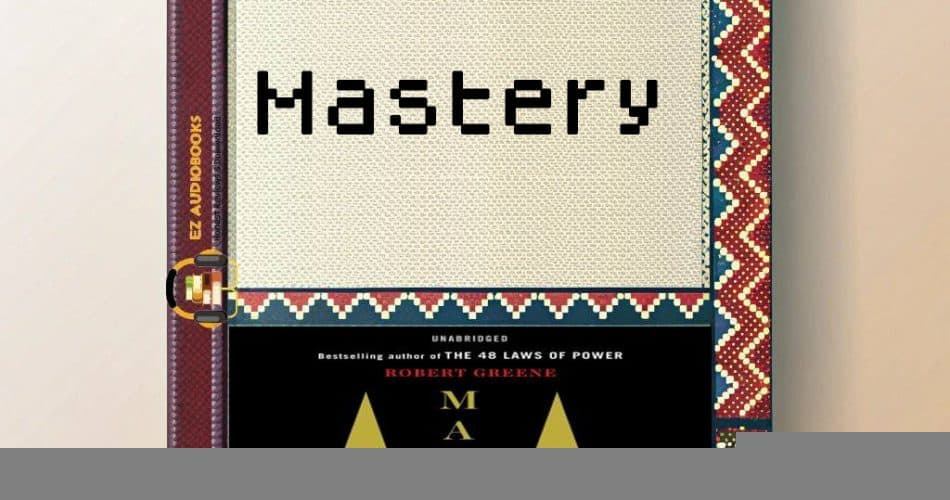Audiobook Sample
Listen to the sample to experience the story.
Please wait while we verify your browser...
- Title: Mastery
- Author: Robert A. Greene
- Narrator: Fred Sanders
- Length: 16:08:00
- Version: Abridged
- Release Date: 13/11/2012
- Publisher: Penguin Audio
- Genre: Business & Economics, Self Development, Career Development, Health & Wellness
- ISBN13: 9.78E+12
In the realm of self-development literature, Robert A. Greene’s *Mastery* stands as a seminal text that delves deep into the essence of achieving greatness. Narrated by the versatile Fred Sanders, this audiobook offers a compelling journey into the minds of historical and contemporary masters, providing listeners with a roadmap to unlock their own potential. As a literature professor with a keen interest in cross-cultural narratives and the evolution of storytelling, I found *Mastery* to be a rich tapestry of insights, weaving together historical anecdotes, psychological principles, and practical advice.
**Initial Impressions and Personal Connection**
From the very first chapter, *Mastery* resonated with me on a personal level. Greene’s exploration of the apprenticeship phase reminded me of my own academic journey. During my year as a visiting professor in Tokyo, I discovered the works of Haruki Murakami, and reading *Kafka on the Shore* in both English and Japanese opened my eyes to how language shapes narrative perception. Similarly, Greene emphasizes the importance of immersing oneself deeply in a chosen field, a concept that transcends cultural and linguistic boundaries.
**Analysis of Key Themes and Content**
Greene’s *Mastery* is structured around several key themes that are both timeless and timely. The book begins with the concept of discovering one’s Life’s Task, a calling that aligns with one’s innate talents and passions. Greene then moves on to the apprenticeship phase, where he stresses the importance of observation, practice, and the absorption of tacit knowledge. This phase is crucial, as it lays the foundation for future innovation and mastery.
One of the most fascinating aspects of *Mastery* is Greene’s analysis of the creative-active phase. Here, he discusses the necessity of breaking away from conventional thinking and developing a unique voice. This theme particularly resonated with me, as it echoes my experiences in teaching contemporary fiction. In my seminar at Berkeley, we explored how different mediums affect storytelling, and the moment when we compared the traditional book, ebook, and audiobook versions of *Cloud Atlas* led to fascinating discussions about how format influences narrative structure and reader engagement.
**Narrator Performance and Audio Quality Assessment**
Fred Sanders’ narration of *Mastery* is nothing short of masterful. His clear, articulate delivery ensures that the complex concepts and detailed historical anecdotes are easily digestible. Sanders’ ability to modulate his voice to match the tone of the material adds depth to the listening experience. Whether he is recounting the meticulous habits of Leonardo da Vinci or the bold innovations of Albert Einstein, Sanders brings each story to life with a nuanced performance.
The audio quality is impeccable, with crisp sound and seamless transitions between chapters. This makes for an engaging and immersive listening experience, allowing the listener to fully absorb the wealth of information presented.
**Balanced Perspective on Strengths and Limitations**
While *Mastery* is undoubtedly a powerful and inspiring work, it is not without its limitations. Greene’s reliance on historical figures and their extraordinary achievements may feel daunting to some readers. The book’s emphasis on individual mastery occasionally overlooks the role of collaboration and collective effort in achieving greatness. Additionally, the dense, information-rich content may require multiple listens to fully grasp all the nuances.
However, these limitations are minor when compared to the book’s strengths. Greene’s meticulous research and compelling storytelling make *Mastery* a valuable resource for anyone seeking to understand the path to excellence.
**Comparison with Similar Works**
In the landscape of self-development literature, *Mastery* stands out for its depth and historical perspective. While Mark Manson’s *The Subtle Art of Not Giving a F*ck* offers a more pragmatic and acceptance-oriented approach, Greene’s *Mastery* provides a comprehensive guide to achieving greatness through deliberate practice and innovation. Similarly, Jonathan Haidt’s *The Happiness Hypothesis* explores the science of happiness through the lens of ancient wisdom, offering a more academic perspective compared to Greene’s anecdotal and narrative-driven approach.
**Recommendations for Potential Listeners**
I highly recommend *Mastery* to anyone who is serious about personal growth and professional development. Whether you are a student, an entrepreneur, or a seasoned professional, Greene’s insights will provide you with valuable tools to unlock your potential. The audiobook format, enhanced by Fred Sanders’ stellar narration, makes this complex material accessible and engaging.
**Personal Reflection**
Listening to *Mastery* was a transformative experience for me. It reinforced the importance of continuous learning and the pursuit of excellence in my own academic career. As I continue to explore the intersections of literature, culture, and technology, I am reminded of the timeless principles of mastery that Greene so eloquently articulates.
In conclusion, *Mastery* is not just a book; it is a call to action, urging us to embark on the path to greatness with purpose and passion.
With intellectual curiosity and a commitment to lifelong learning,
Prof. Emily Chen

